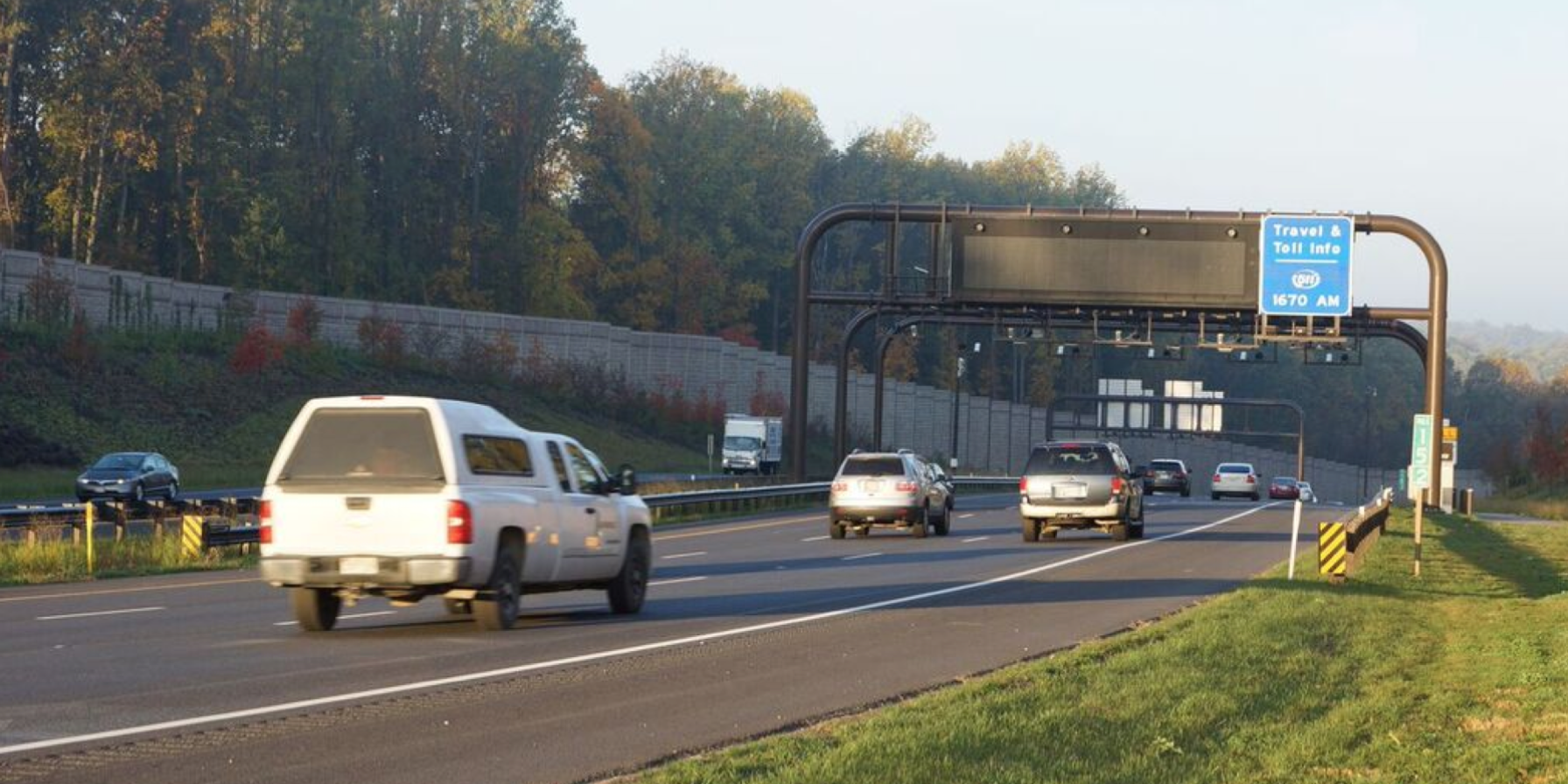- Home
- IBTTA Insights
- Tolling, Congestion Charging Figure Prominently in Congressional Budget Office Report
Stories
Tolling, Congestion Charging Figure Prominently in Congressional Budget Office Report


A report released this month by the non-partisan Congressional Budget Office (CBO) points to highway pricing as one of the surest ways to boost economic output in the United States, by reducing congestion on the country’s highest-value roads and freeing up scarce government funds for other purposes.
The CBO’s findings dovetail nicely with the message the tolling industry has been putting forward to federal and state decision-makers—and with the practical solutions IBTTA members deliver every day, across 35 states and nearly 6,000 miles of tolled facilities.
“It is exciting to see the economic benefits of tolling explored in such a clear-eyed manner,” IBTTA Executive Director and CEO Patrick Jones said in a release. “As CBO explains in its report, implementing tolls on highly traveled highways can boost productivity by incentivizing more efficient travel patterns for workers, and by reducing delivery and inventory costs associated with goods by moving them more quickly to their destinations.”
He added that “these kinds of gains extend far into the broader economy.”
Highway Funding That Matches Demand
The CBO calculations point to a disconnect between highway funding and the most urgent need for repairs and refurbishment: while rural roads and bridges outside the Interstate system typically receive the most financial support, they see the lowest congestion and already have relatively good pavement quality and relatively few bridges rated deficient or obsolete.
The difference matters because, while highway infrastructure investment can boost the wider economy, its impact on business productivity depends on how and where the spending is allocated. “Roads, bridges, or other forms of transportation to sparsely populated places or little-used infrastructure may provide few of the benefits, let alone offset the costs,” CBO notes.
That distinction points directly back to the efforts of tolling agencies from Maine to Florida, Texas to California and from Ohio to Washington State that are wringing more volume and mobility out of the nation’s densest, most heavily-travelled corridors. It turns out that IBTTA members are already practicing the solutions that CBO is preaching.
User-Pay Could Save the Day
The Budget Office points to three user-pay models—vehicle miles traveled (VMT) charges, congestion pricing, and tolling existing Interstate capacity—as solutions that could make America’s roads more productive and efficient.
“More widespread charging for the use of roads could increase economic output by allowing highly valued transportation to move more quickly and reliably and could reduce the demand for additional capacity, allowing funding to be spent for other purposes,” the Congressional agency states. “Drivers could also be charged for using roads when traffic is greatest, or the federal government could allow some of the more heavily used roads—older Interstates, where charges are generally not imposed now—to be converted into toll roads.”
The report also underscores the immense potential to bring badly-needed dollars into the system. “Currently, only about seven percent of the Interstate system is composed of highways with tolls,” CBO notes. “Interstates, which are typically the most heavily used roads, would yield the greatest benefits from such pricing. The revenues gained from tolling on Interstates could be used to make repairs, expand capacity, or substantially renovate the Interstate system.”
A ‘Breath of Fresh Air’
With its vigorous defense of user financing and its critique of the gas tax as a driver for economic productivity, the CBO report “is a breath of fresh air,” said IBTTA’s Jones.
“On the most basic level, the gas tax is no longer a viable or sufficient funding solution. And as the CBO now points out, the gas tax also fails to make the grade in driving long-term economic output the way tolling can, and lacks the ability of a tolled system to match funding to actual highway usage.”
With the FAST Act, a long-term highway bill, now in place at the federal level, it will be some time before Congress has a chance to take action on the CBO’s insights. But the findings lend weight and urgency to the work that is already going on in many states to advance tolling as an important tool in the highway infrastructure funding toolbox.
For more insight into highway infrastructure funding policies, register today for more on IBTTA’s Transportation Policy and Finance Summit, March 13-15, 2016 in Washington, DC.

Joining IBTTA connects you to a global community of transportation professionals, offering unmatched opportunities for networking, knowledge-sharing, and collaborative innovation in the tolling and transportation sector.
Follow IBTTA on social media for real-time updates on transportation trends and collaborative opportunities.





